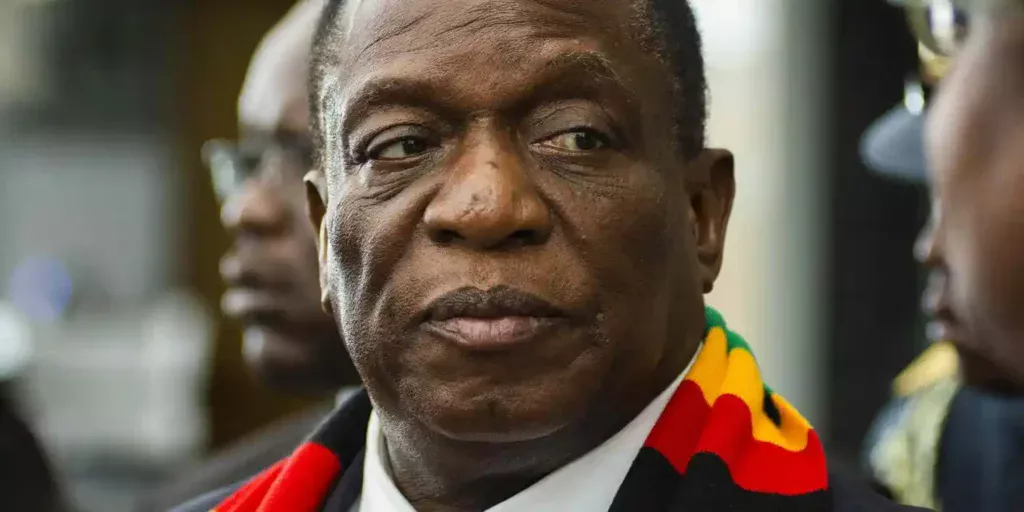Court disputes soiling election election fever

President ED Mnangagwa
There are 133 election court disputes before the courts.
Due to court appeals, the Zimbabwe Electoral Commission is yet to print ballot papers. The ruling party is accused of resorting to the courts to stay in power.
The election spirit in Zimbabwe has been dampened by 133 election court disputes.
There were also high court judgments, which barred independent presidential candidate, Saviour Kasukuwere, and 12 Citizens Coalition for Change (CCC) parliamentary hopefuls.
After Bulawayo High Court Judge Justice Nokuthula Moyo on Thursday ruled that 12 CCC candidates filed their papers post-deadline, a political analyst, Ibbo Mandaza, said it was a “fundamental assault on democracy”.
The CCC has now mounted a challenge against the ruling, with less than a month before the general elections.
“The noting of the appeal suspends the operation of the judgment. Our candidates are accordingly still on the ballot and will remain there until the appeal is heard and determined,” said party spokesperson Fadzayi Mahere.
We are Ignite Media Services: New members who wish to receive detailed election and news updates from us should send “join” to 0778 242 692
CCC leader Nelson Chamisa said the ruling by the high court was President Emmerson Mnangagwa’s way of plunging “Zimbabwe into an unprecedented electoral and national crisis”.
Mandaza added that, once the court challenge by the CCC fell flat, they might as well boycott the elections.
“There are many more negative features in the electoral process so far that render the 2023 elections flawed,” he said.
Kasukuwere, 53, a one-time Zanu-PF political commissar and up-and-coming Cabinet minister, fled the country after the November 2017 putsch which dislodged the late Robert Mugabe.
Two months before the 23 August plebiscite, he announced that he was challenging for the presidency.
But that might not be the case if the Supreme Court ruling handed down on Friday stands.
‘Crisis and new low’
Kasukuwere’s lawyer, Method Ndlovu, told journalists they would challenge the ruling.
“As a nation, we are on the eve of a constitutional and electoral crisis,” he said.
A political analyst, Pedzisai Ruhanya, said Zanu-PF was resorting to the courts, and not the masses, to remain in power.
He said:
The courts are now electing people’s representatives in Zimbabwe. Zanu-PF’s stay in power is through control and manipulating state institutions, not the democratic will of the masses.
In an interview with Voice of America, Justice Minister Ziyambi Ziyambi said the printing of ballot papers by the Zimbabwe Electoral Commission (ZEC) was being delayed by the large number of cases before the courts.
It has made the postal vote impossible under the country’s laws.
A postal vote is normally for those working in embassies abroad, or police, healthcare workers, and the army, who won’t be available to vote due to work commitments of national interest.
By Section 74 of the Electoral Act, the chief elections officer must receive a request for a postal ballot paper no later than noon on the 14th day following the election’s nomination day.
The Nomination Court convened on 21 June, 2023, and the deadline fell on 5 July, 2023.
That was 24 days ago.
For John Ncube, a teacher based in Bulawayo, the “see-saw” has made him wonder why Zimbabweans will go to the polls in the first place.
“What’s the point of going to vote when some people’s preferred choices are going to be removed from the ballot paper by those that don’t want to be challenged?
“It’s going to boil down to a stage-managed show. I might as well shun it. The government should really take this seriously because, as it stands, we are a circus,” he said.
Sipho Malunga, the Open Society Africa programme director, tweeted: “What an epic electoral disaster! The worst ever in 43 years!”
Professor Jonathan Moyo, a former Cabinet minister under Mugabe, wrote in an opinion post that “the situation is extraordinary, unprecedented in Zimbabwe’s electoral history, and arguably with no parallel even in SADC or across the continent”.







